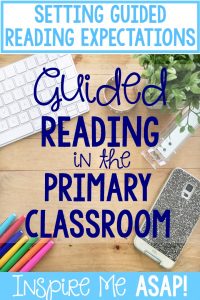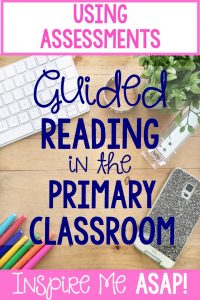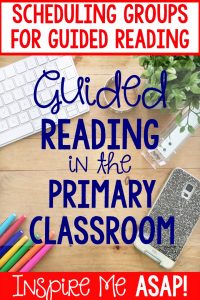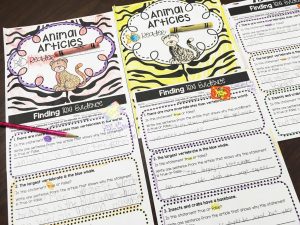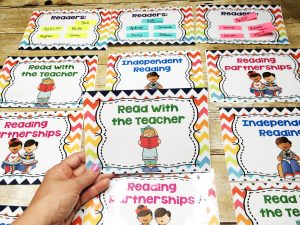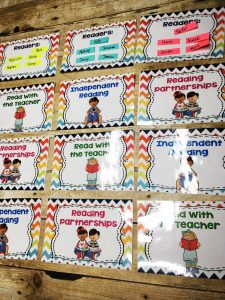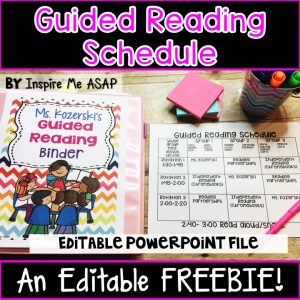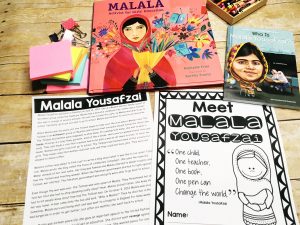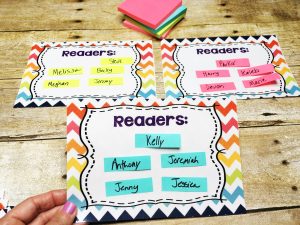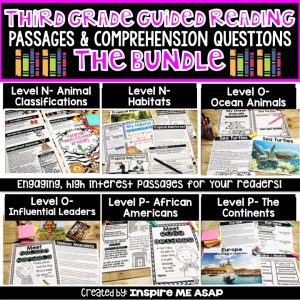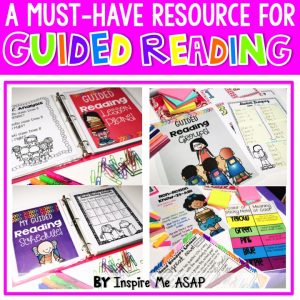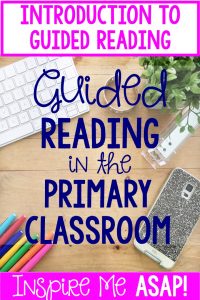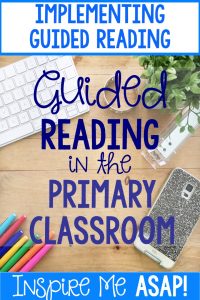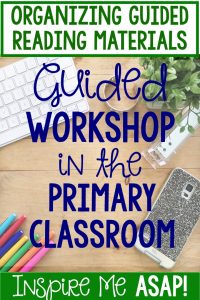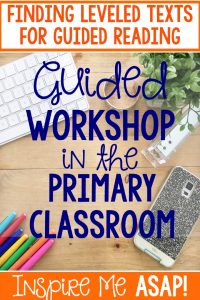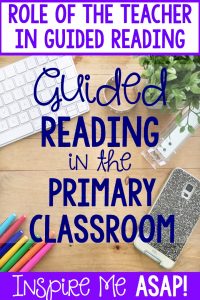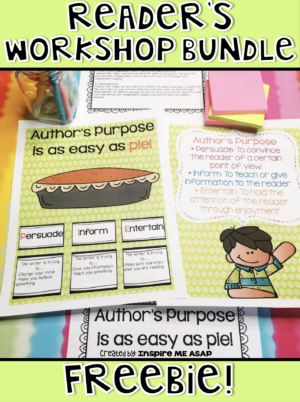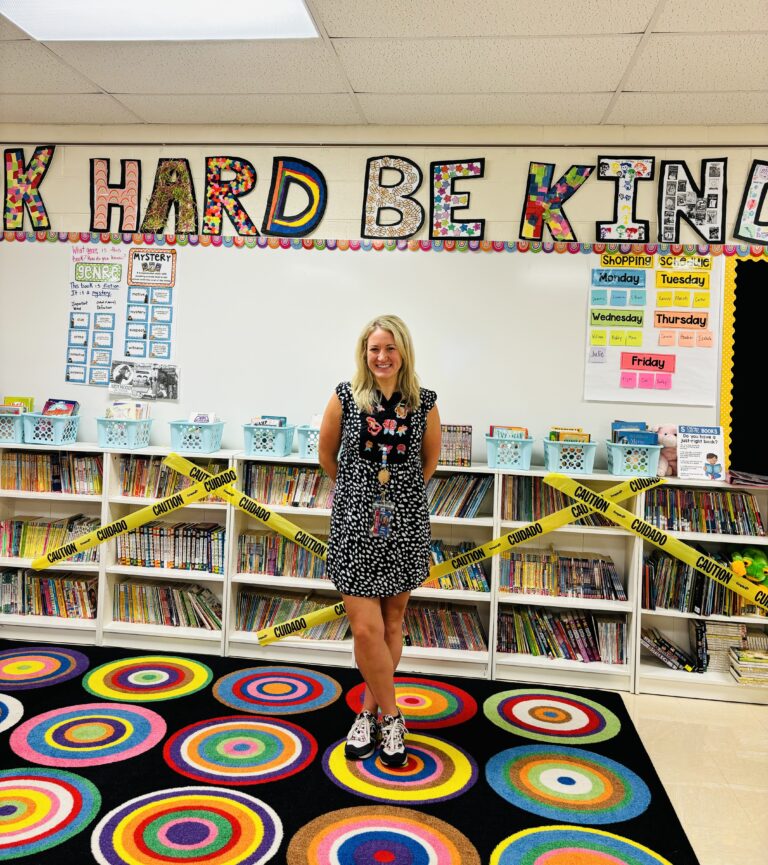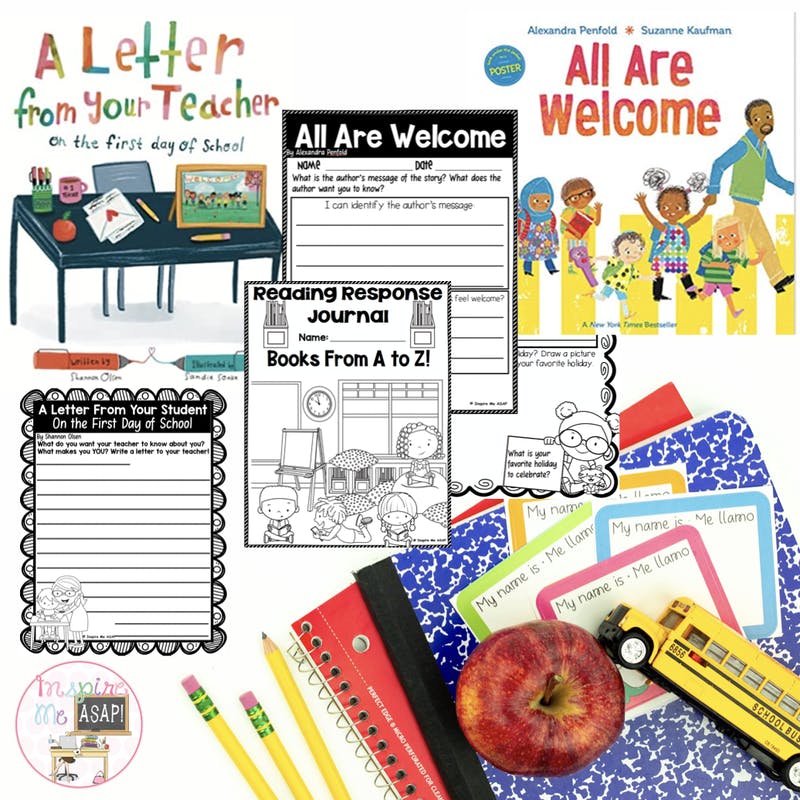Do you need guidance on grouping your students for guided reading groups? This post is the fifth in an 8 part series that I will write about implementing guided reading into your classroom.

Today, for my fifth post in this guided reading series, I will share some tips about creating and scheduling groups for guided reading.
Below are some of my top tips for creating and scheduling guided reading groups!
Tip 1: Keep your groups flexible
After viewing my guided reading video, I had a reader email me about the meaning of “flexible” in the context of flexible grouping. She asked me about what it looks like and how to make sure groups really are flexible. She hears her reading specialist talk all the time about the importance of keeping groups flexible, but did not understand what it meant. Simply put, flexible grouping means that teacher is grouping the students temporarily- for a lesson, a few days, a week, or possibly a month. When you have a flexible group, you may have a group of readers at all different reading levels. You have a heterogeneous mix (not always a homogenous mix) of students in one small group. This mix of students has about 5-6 students who are at various reading and achievement levels.
Instead of pulling a group of readers who are reading a level M text, for example, you may be pulling a group of students who all need help with the same reading strategy. They are all at different reading levels, and each has a different text, but you are teaching the group the same skill.
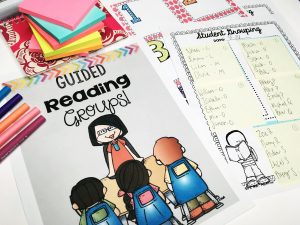
Here is one example of a flexible group for guided reading. After grading the district common reading assessment, I noticed that I had a handful of students who got the same question wrong. The question was asking the students about a vocabulary word in bold print. The question stated something like, “What is the meaning of the word “litter” in the sentence below?” It was clear that the students did not go back to the text to reread the sentence/paragraph with that particular word in it, to try and figure out the meaning. Instead, they just guessed or picked the answer that seemed right to them. I gathered this small group of students to meet with me for a few weeks. All of these students were at different reading levels, very different reading levels. However, I formed this group because I wanted to focus on the reading strategy of determining the meaning of unfamiliar words in bold print. For the next couple of weeks, I provided explicit instruction about how to use context clues to determine the meaning of an unfamiliar word.
For more tips about keeping groups flexible, check out my 5 minutes YouTube video below:
Tip 2: Keep your guided reading schedule flexible
My guided reading schedule changes EVERY YEAR. Depending on the needs of my students, if I am working with a co-teacher or reading interventionists, I always have to adapt my schedule at the beginning of the year. Sometimes, I even modify my entire schedule during the middle of the year. Assemblies, RTI meetings, absent students, IEP meetings, absent reading teacher, absent co-teacher, field trips, holidays…I could go on and on for all the different reasons why we NEED to be flexible with our schedule, but you already know why. There are so many things that come up during a “typical” week, that it makes it challenging to stick to any schedule.
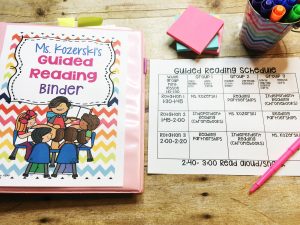
Let’s look at one way to group your students. In this example, a teacher meets with every student every day. It may seem like too much, however some districts require their teachers to meet with every student every day. Also, depending on if you have an instructional aide, co-teacher, or even parent volunteers, you might be able to “divide and conquer.” It may be that all students are meeting with a teacher, but it may be the co-teacher or the reading interventionist.
*** Important side note: I always begin my reading instruction with the core lesson, which all students are present for. Students can’t be pulled from this time. ***
In the picture above, a teacher (myself, my co-teacher, the reading interventionists, etc.) meets with each student every day. Students have three daily rotations: read with a teacher, independent reading, and reading partnerships. Research indicates that students become better readers by READING. Not doing busy work worksheets with reading skills, but real reading. Research indicates that to make adequate growth, students need to read at least 30 minutes every day. For this important reason, I do not have my students do “centers.” They are either reading with me, their reading partner, or by themselves.
I have a FREE guided reading schedule template that you can use to create your schedule. It is a PowerPoint presentation and you can edit the text so that you can add your student’s names and different times.
Get your copy of the editable guided reading schedule by clicking on the button below:
Tip 3: Group your students based on their interests or content area of study
You know your students best. YOU do! You know that Jeremiah loves basketball, Melanie is in cheerleading, and Daniel loves comics. YOU know these things about your students because you know how important it is to build relationships with them throughout the year. Take what you know about your students to form different kinds of groups. Instead of focusing on an instructional need, maybe you will work with a group of students who all have the same interest in a particular topic.
For example, I noticed that I had a group of four students who were obsessed with the “Who Was” series in our classroom library. I pulled this group of students together because they had the same interests in books. When I showed them that I had a text about Nelson Mandela and Malala Yousafzai, they were THRILLED and so excited to read them. ( You can get your copy of these passages here: Influential Leaders Guided Reading Passages)
If it is the beginning of the school year and you are still getting to know your students, consider giving them a reading interest survey. After reading my students reading surveys, I also group my students according to their reading goals. I look for patterns of students who share the same goal- wanting to read more at home, wanting to stay focused, etc. So you could also group your students based on their reading goals!
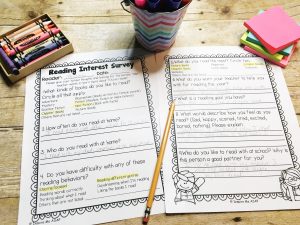
(The reading surveys are part of my Reading Workshop Unit: Reading is Thinking)
Tip 4: Post the title of the book the group is reading (versus the reading level of the students)
Are you looking for a way to display your reading groups? Instead of posting the student names with their level, consider a display that shows the students’ names along with the BOOK they are currently reading in that group. I like to write each student’s name on a sticky note, so then I can easily switch them around, hence using flexible grouping.
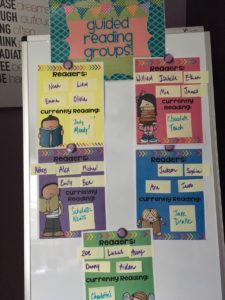
For example, instead of calling “Jackson, Sophia, Mason, and Ava,” I would just say, “Jake Drake!” This keeps the focus on the text and not the level of the text.
In the picture below, it shows how I post student names’ on sticky notes.
If you are interested in creating your own reading rotation bulletin board, you can purchase this resource on my website for $1.80 by clicking here–>Reading Rotations Bulletin Board Display for Reading Workshop. Or, you can also purchase it on TpT, here–>Reading Rotations Bulletin Board Display.

Want to keep learning more about how to implement guided reading into your primary classroom?? On August 8, 2016, I posted a video on my Facebook page about implementing guided reading in a primary classroom at the beginning of the new school year. You can view this video by clicking HERE or by clicking on the image below, where you be taken to my Facebook page.
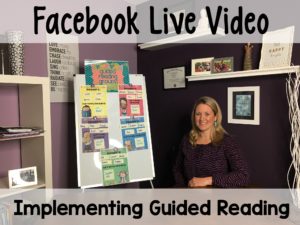
This video gives 6 specific and detailed steps to take when implementing guided reading into your primary classroom at the beginning of a new school year. (The video starts off sideways for a few minutes–but then returns to normal.) This is a 40-minute detailed video to watch now or save for later! I also typed up a summary of my video on this blog post, which includes the links for all the resources that I included in my guided reading video.
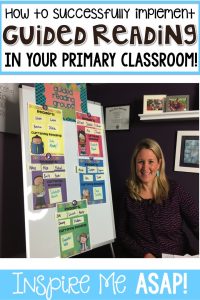
Looking to learn more about how to implement guided reading in your classroom? Check out these guided reading resources I created below!
First Grade Guided Reading Passages
To buy the first grade GR passages on Teachers Pay Teachers click here: First Grade GR Passages
Save 10% by purchasing the first grade GR passages on my website by clicking here: First Grade GR Passages
Second Grade Guided Reading Passages
To buy the second grade GR passages on Teachers Pay Teachers click here: Second Grade GR Passages
Save 10% by purchasing the second grade GR passages on my website by clicking here: Second Grade GR Passages
Third Grade Guided Reading Passages
To buy the third grade GR passages on Teachers Pay Teachers click here: Third Grade GR Passages
Save 10% by purchasing the third grade GR passages on my website by clicking here: Third Grade GR Passages
Create your own Guided Reading Teacher Binder:
To buy the Must-Have Guided Reading Resource on Teachers Pay Teachers click here: Guided Reading Binder Bundle
Save 10% by purchasing the Must-Have Guided Reading Resource on my website by clicking here: Guided Reading Binder
Looking to learn more about guided reading? Be sure to check out the guided reading blog post series that I will be writing!
